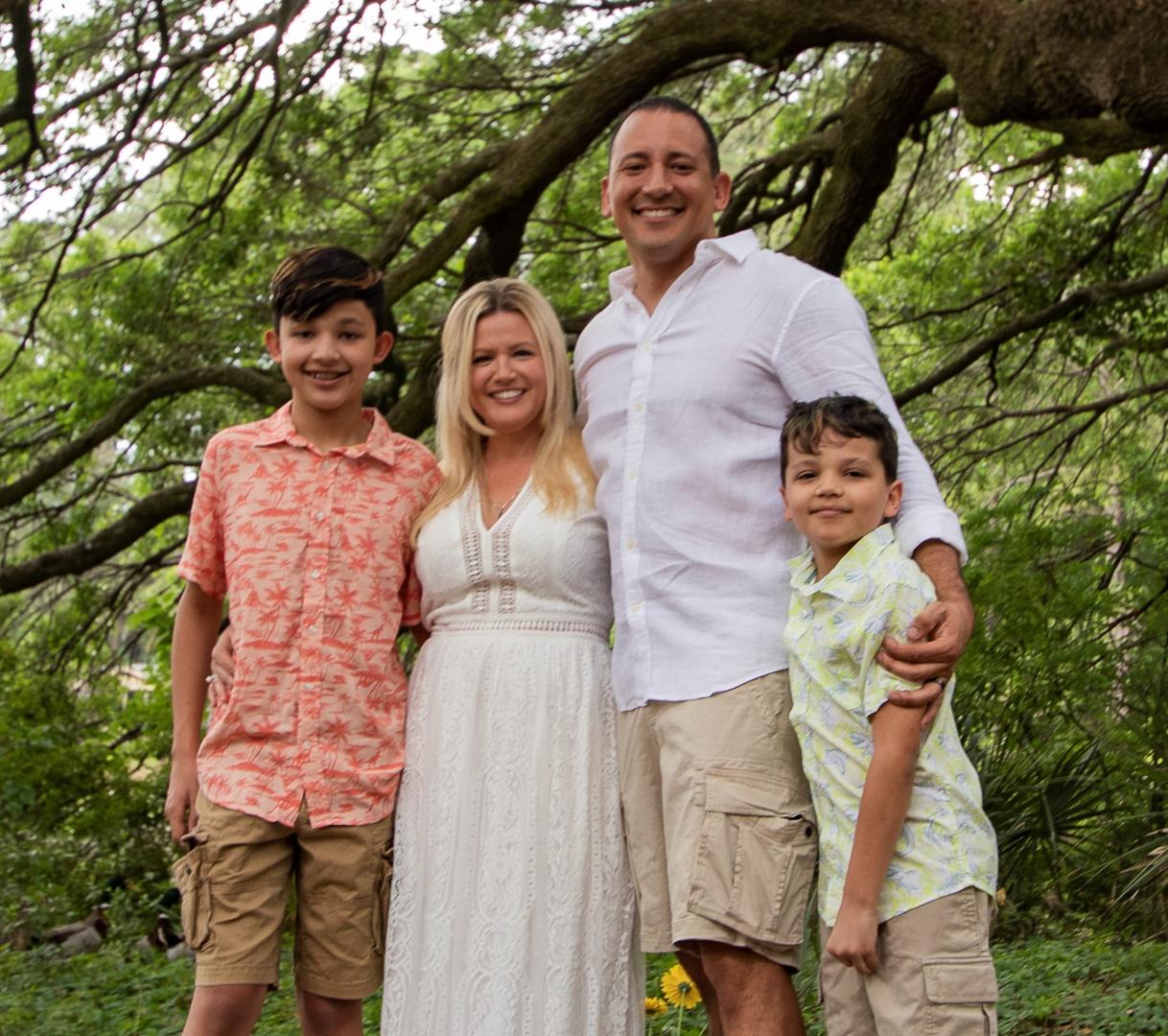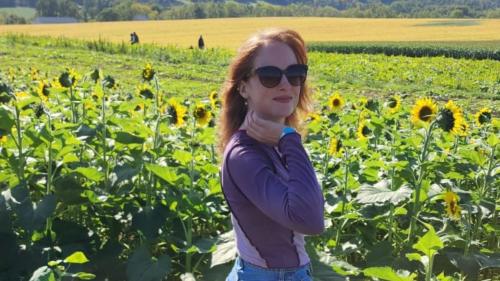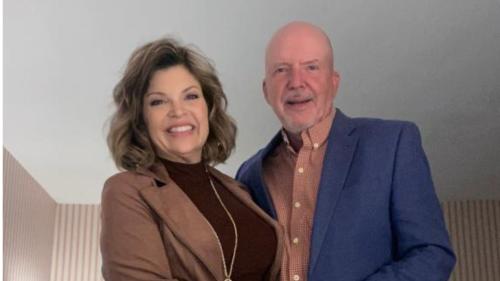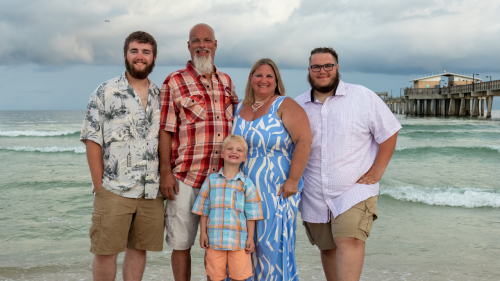
-
Understanding primary immunodeficiency (PI)

Understanding PI
The more you understand about primary immunodeficiency (PI), the better you can live with the disease or support others in your life with PI. Learn more about PI, including the various diagnoses and treatment options.
-
Living with PI
-
Addressing mental health
-
Explaining your diagnosis
- General care
- Get support
- For parents and guardians
-
Managing workplace issues
- Navigating insurance
-
Traveling safely

Living with PI
Living with primary immunodeficiency (PI) can be challenging, but you’re not alone—many people with PI lead full and active lives. With the right support and resources, you can, too.
-
Addressing mental health
-
Get involved

Get involved
Be a hero for those with PI. Change lives by promoting primary immunodeficiency (PI) awareness and taking action in your community through advocacy, donating, volunteering, or fundraising.
-
Advancing research and clinical care
-
Grants
-
IDF surveys
-
Participating in clinical trials
-
Diagnosing PI
-
Consulting immunologist
-
Clinician education

Advancing research and clinical care
Whether you’re a clinician, researcher, or an individual with primary immunodeficiency (PI), IDF has resources to help you advance the field. Get details on surveys, grants, and clinical trials.
-
Grants
As an infant, Eli Ferreira endured staph infections, trouble breathing, restless sleep, reflux, poor weight gain, and fevers. Amy and David Ferreira took their son to the pediatrician repeatedly for months until finally, doctors admitted Eli to the hospital for severe respiratory distress.
Eli’s health confounded doctors because they couldn’t determine why a baby so young would have pneumonia and a tear in his lungs. He remained on oxygen for two weeks before improving enough to return home.
Though the doctors at the hospital had no answers, the pediatrician referred the family to a pulmonologist who did. The pulmonologist called her friend, an immunologist, who diagnosed Eli at 6 months old with X-linked agammaglobulinemia (XLA). That immunologist also introduced the Ferreiras to the Immune Deficiency Foundation (IDF).

A few months later, Amy Ferreira sought help from IDF’s Peer Support program, a resource that paired her with another caregiver of a child with primary immunodeficiency (PI) whom she could talk with about her experiences. Ferreira said that when her peer support partner shared that her son was doing well and attending college, it changed her perspective.
“It was the most relieving thing that I heard the entire time, and it made me feel so much better,” said Ferreira. “There were so many family members and friends who tried to be supportive, but no one really understood what we were going through. They’d say, ‘It will be OK,’ but I thought, ‘How do you know?’”
IDF’s Peer Support program is a caring community that connects persons affected by PI with trained Peer Support volunteers who have similar relationships to PI. Peer Support volunteers make regular contact with those they assist, and the discussion is confidential. This free program is open to people with PI, parents or other family members, friends, and caregivers.
The Peer Support program is designed to alleviate the isolation that those affected by PI sometimes feel. Peer Support volunteers receive training on how best to help others by listening to their cares and concerns, offering emotional support, and expressing their understanding by sharing their own personal stories.
Peer contacts may also provide information on local resources, plan IDF Get Connected Group meetings, increase awareness of PI in their communities, and serve as advocates in both local and federal public policy arenas.
Ferreira looked to her Peer Support volunteers for conversations about being a caregiver to someone with PI.
“What I appreciated the most and what I got the most out of was the camaraderie, knowing that there was someone who understood and who was going through it in a real way. They understood about infusions and what happens when you try to find childcare and the other challenges we had,” she said.
“I still had some postpartum depression, so my mental state was complicated, and I needed that camaraderie so badly – that was huge.”
In fact, the experience of having someone to talk to who could offer such a deep level of understanding inspired Ferreira to volunteer herself for the Peer Support program. For the past nine years, she’s been the listener, confidante, and supporter of others.
“It had meant so much to me that I really wanted the opportunity to give it back to someone else,” said Ferreira.
Usually, she’ll start her support through phone calls and eventually stays in touch through emails. Some need only one conversation and others benefit from more consistent communication.
Among the dozen or so people Ferreira’s supported is a mother of a toddler with XLA. The mom is struggling to keep her son safe while also ensuring he is socialized and trying to find a balance between juggling doctor appointments and maintaining a life of her own.
“It’s overwhelming, and it feels like this is how it’s going to be forever; we’re going to be scared like this forever. It was interesting to be able to tell her that this isn’t forever - you will have this figured out one day, and you’ll have the treatments in order and the specialists lined up, and you’ll look back on this and remember how exhausting it was and how grateful you are now,” said Ferreira, whose son is now a healthy 11-year-old receiving weekly subcutaneous immunoglobulin infusions.
Being a Peer Support volunteer requires minimal time and the rewards of the role far outweigh the effort, said Ferreira.
“It doesn’t disrupt my life. It’s a conversation, a phone call in your free time. It’s so simple and has a huge impact at the same time,” she said. “It’s really twofold. I get so much out of it.”
For those looking for support, Ferreira encourages them to take that first step.
“The minute you think you’re alone, stop and look into IDF’s programs. I don’t think I would have done it or known to had it not been suggested. It was life-changing. It can really pull you out of a dark place if you are willing to put yourself out there a little bit,” she said.
Are you interested in the IDF Peer Support program either as a volunteer or someone who is seeking support? Visit Ask IDF or call 410-321-6647.
Related resources

Thirty-year-old with APS type 1 advocates for her community

Susan finds "priceless" support system in the Immune Deficiency Foundation

Mother details harrowing journey to son's diagnosis and relief of finding the PI community
Sign up for updates from IDF
Receive news and helpful resources to your cell phone or inbox. You can change or cancel your subscription at any time.





The Immune Deficiency Foundation improves the diagnosis, treatment, and quality of life for every person affected by primary immunodeficiency.
We foster a community that is connected, engaged, and empowered through advocacy, education, and research.
Combined Charity Campaign | CFC# 66309

